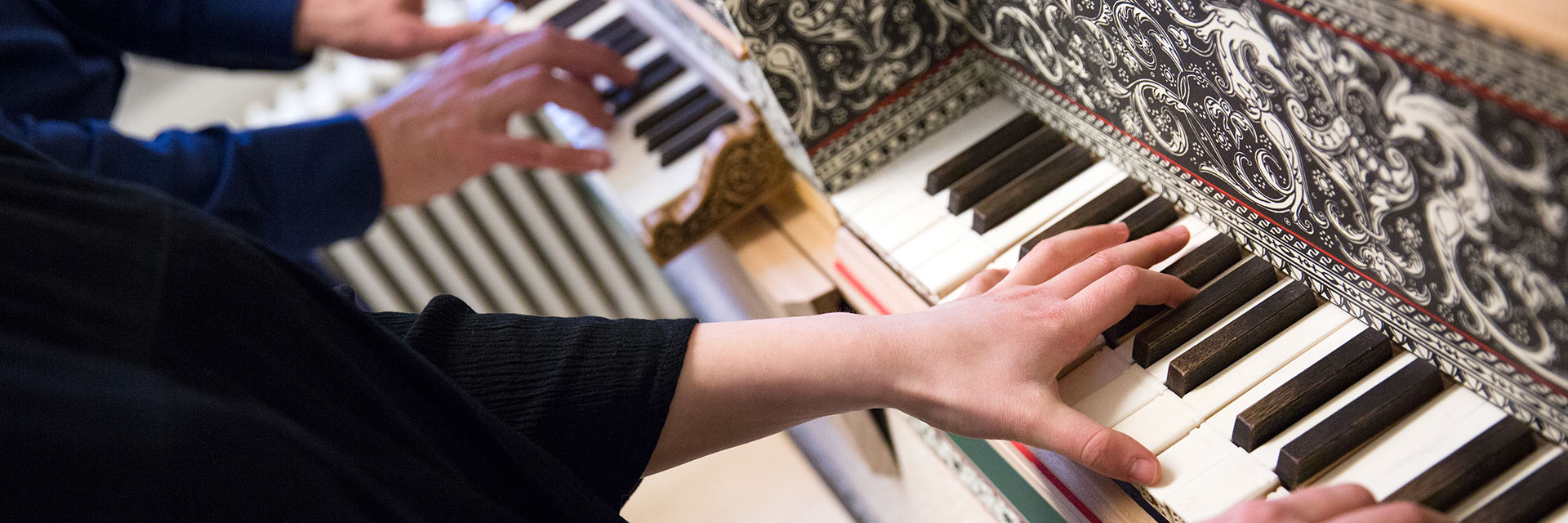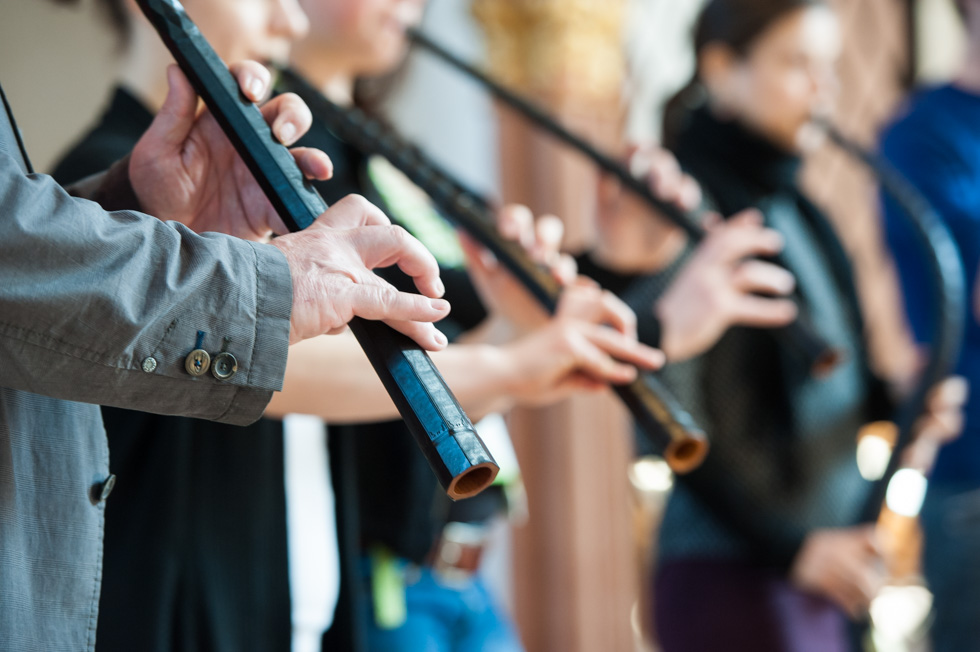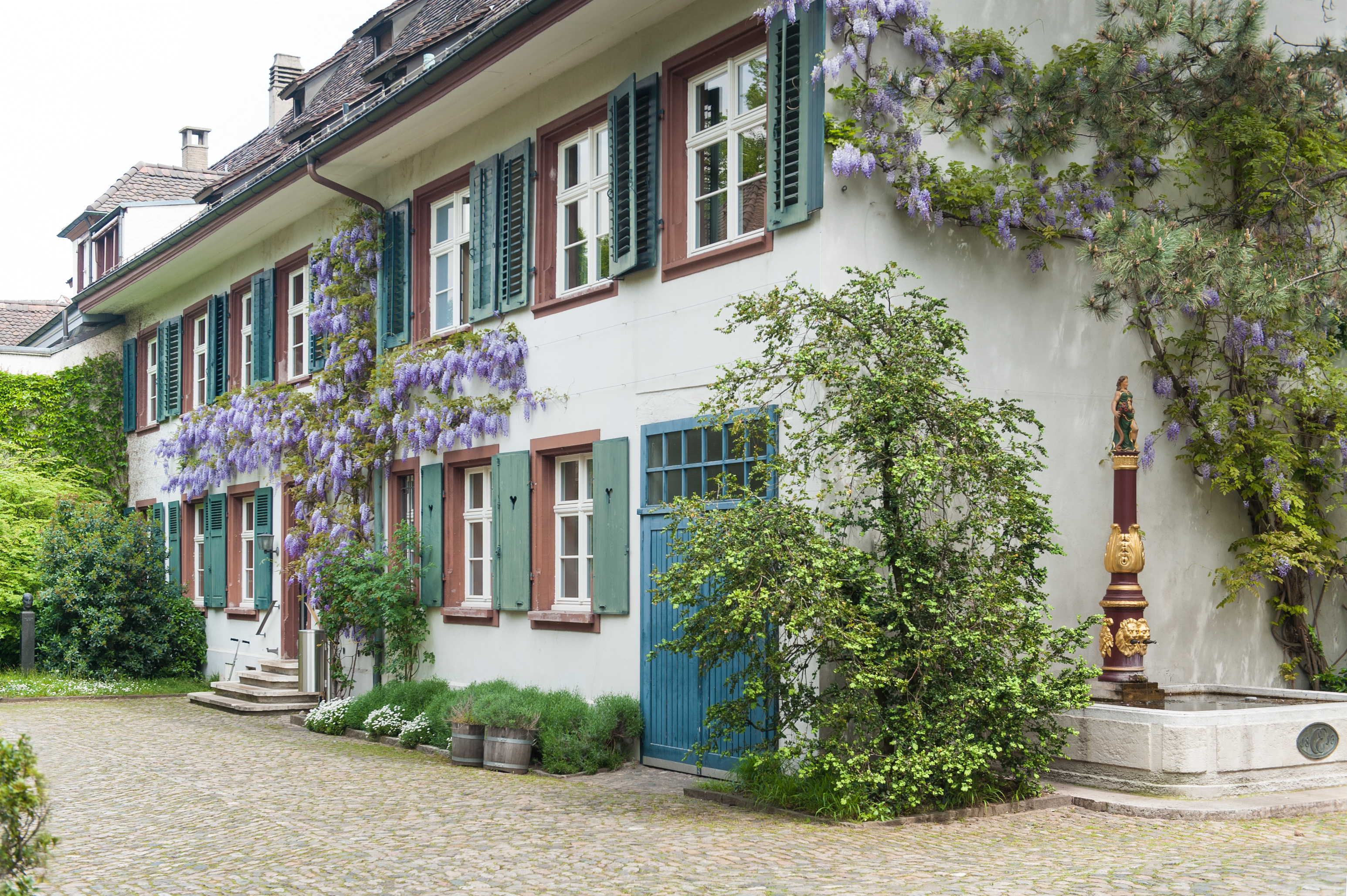Specialised Performance in Early Music instrumental improvisation
Key data
- Degree
- Master of Arts FHNW in Spezialisierter Musikalischer Performance - Studienrichtung Alte Musik Improvisation instrumental
- ECTS points
- 120
- Study start
- in autumn
- Duration
- 4 semesters
- Teaching language
- German (level B1 is required)
- Place
- Campus Musik-Akademie Basel
- Application fee
- 200 CHF
- Semester fee
- 750 CHF (CH) | 1000 CHF (EU/EFTA) | 1250 CHF (Not-EU/Not-EFTA) More Fees
The registration window is open from mid of December until the end of January. Information days on the study programmes are held in mid-January.
Mobile navi goes here!
Historically informed improvisation
Until well into the 19th century, among the many talents well-qualified musicians had to have was the ability to perform in the musical idiom of the time. This also formed an essential part of the improvisational training they received.
In addition to contemporary accounts and methods, the compositions which have been passed down through the centuries constitute important, and often the only, sources for unwritten musical practices of certain eras. Consequently, stylistically-informed composition is a core part of this study programme.
This specialised Master’s programme also focuses on improvisation within an ensemble, as well as issues pertaining to the sharing of methodological expertise and performance practice (clarity, sound aesthetics, contact with the public, stage presence).
Improvisation in all its variants – for keyboard players, practically all forms of solo repertoire; for players of melody instruments particularly ornamentation, diminution, variations and cadences – is a central element of historical performance practice. Ideally, this is where all the specific knowledge and competence gained in the field of Early Music flows together to create an exciting realm of ‘composition in performance’. The Schola Cantorum Basiliensis (SCB) offers a unique combination of courses in practical improvisation, history, and historical composition techniques, which have been developed and refined over the course of its degree programmes.
The aim of this programme is to provide students with the ability to improvise with a high degree of stylistic differentiation, as well as attaining knowledge of historic composition techniques and thoroughbass, advanced instrument proficiency, and individual musical creativity.
No social media links available.


